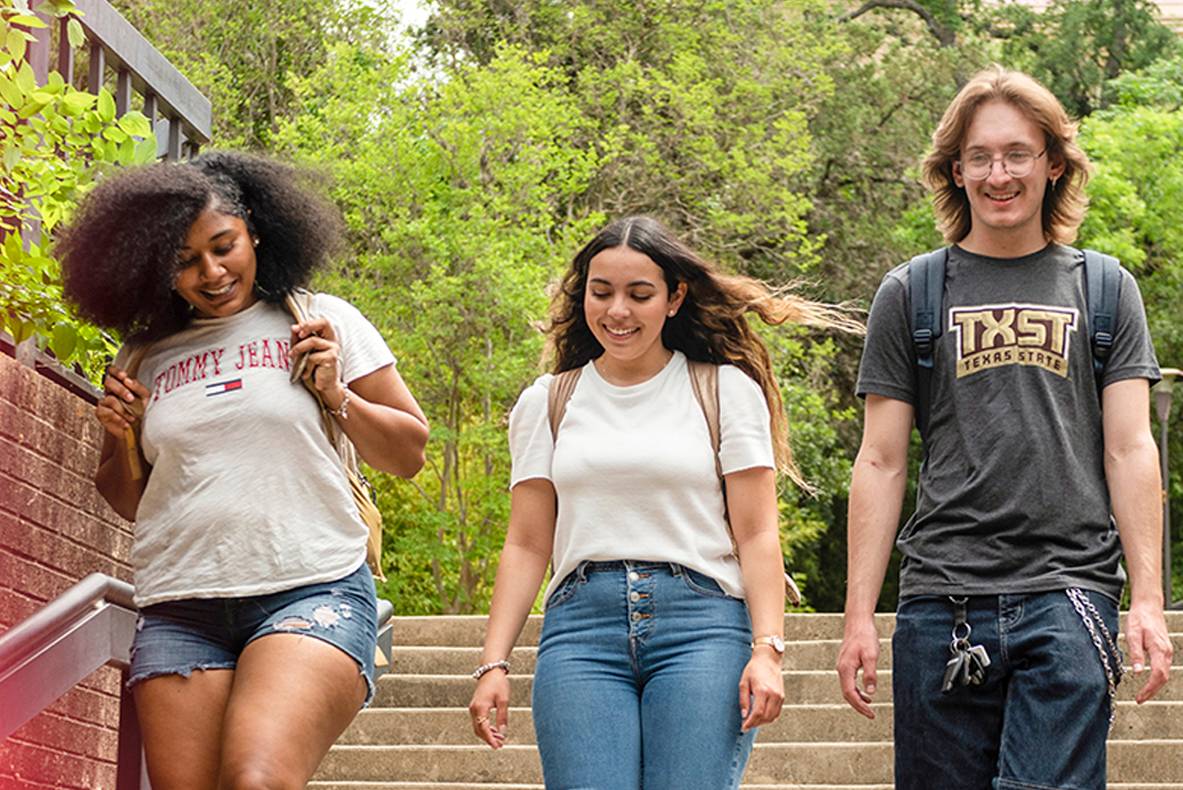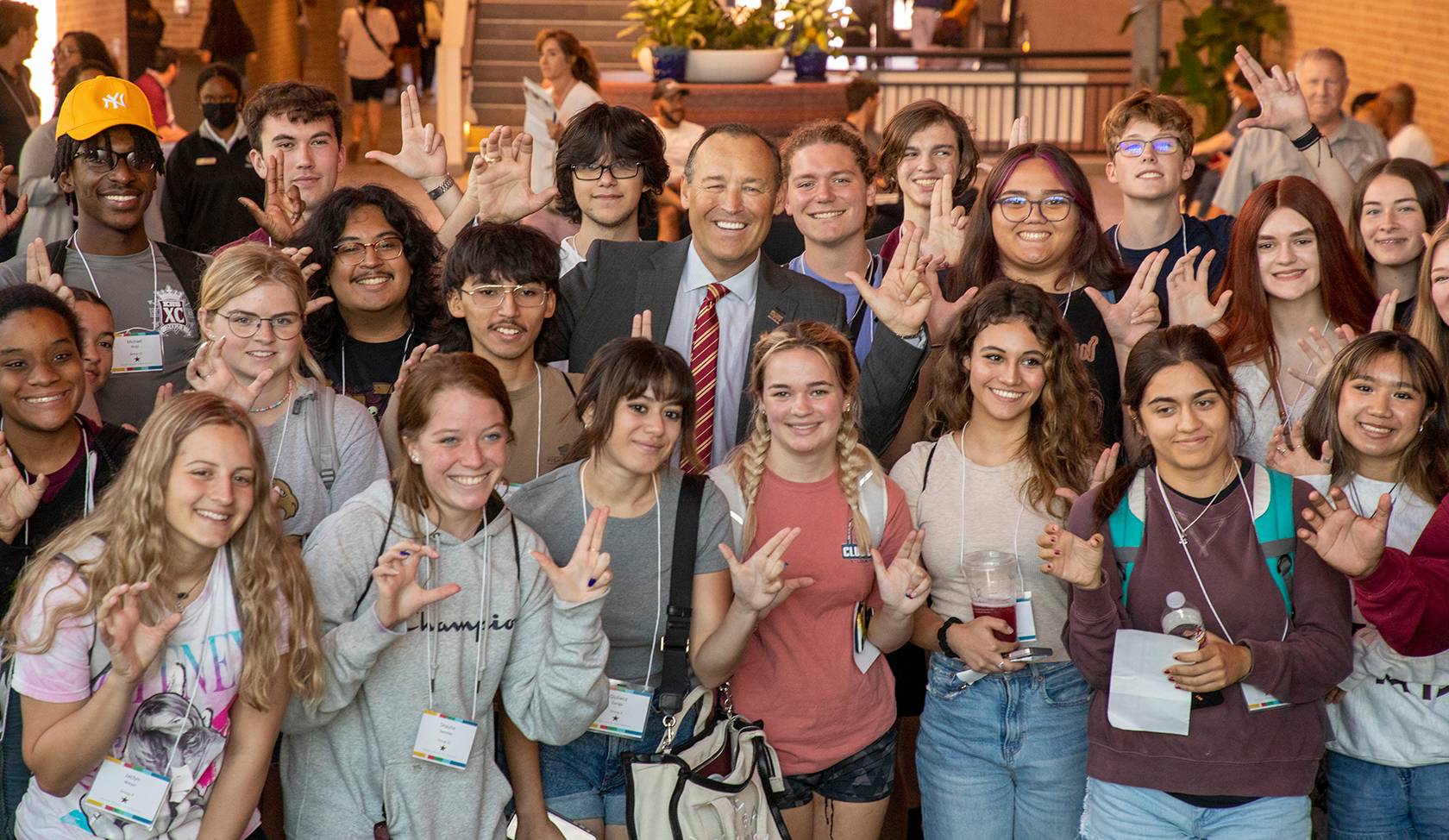Texas State University strives to provide high-quality resources and experiences that engage our diverse student community in advancing their personal, academic, and post-graduation success. Improving student success metrics is a top pillar of the Hopes & Aspirations High vision for TXST’s future.
Student Success
Elevating Student Success

What is the Student Success Goal?
- Expand efforts supporting academic preparedness and excellence.
- Strengthen student engagement, sense of belonging, and well-being.
- Increase support for graduate students.
- Enhance career and post-graduation success.
- Build student success infrastructure.
How will we reach that goal?
TXST is moving forward with critical investments that will enhance student success:
- Launching a student success platform that will include software technology that will allow the university to collect, compile, analyze, and act on data that are known to predict student success.
- Expanding student access to virtual mental health counseling and other initiatives supporting student well-being.
TXST Set Multiple Enrollment Records for Spring 2024
- Total Spring enrollment (35,378) is up 3%
- Total Spring undergraduate enrollment (31,704) is up 3%
- First-time undergraduate (freshman) enrollment (232) is up 59%
- International student enrollment (1,030) is up 43%
- PhD enrollment (528) is up 16%
- Round Rock Enrollment (1,809) is up 7.6%
- Total Student Credit Hours (437,040) are up 6%
Accomplishments
TXST set a record 93.3% persistence rate for First Time in College (FTIC) students who continued from Fall 2023 into Spring 2024

As we accelerate our progress toward becoming a Research 1 institution, we will stay true to TXST’s long-standing commitment to student success.
Kelly Damphousse
TXST President